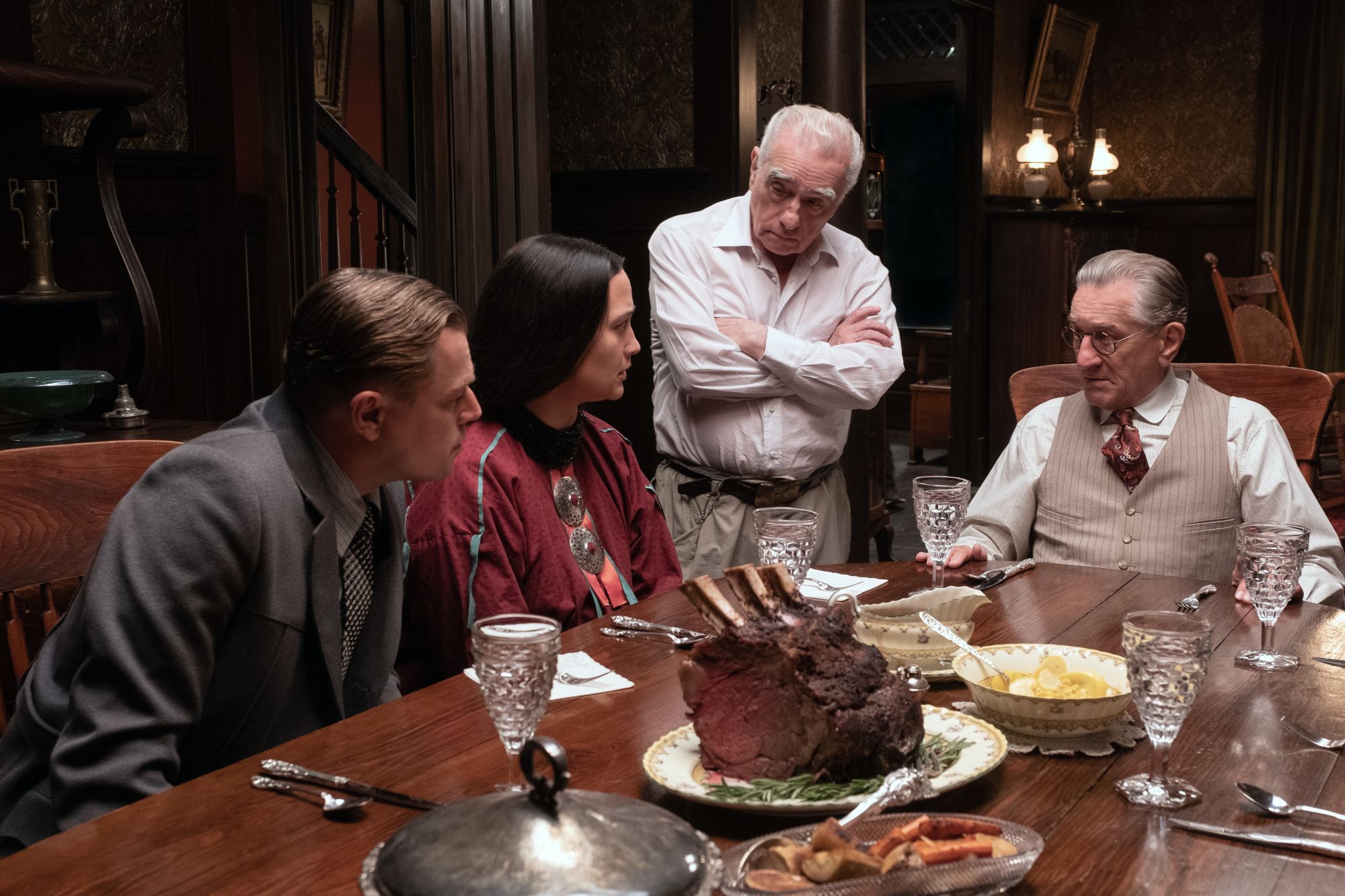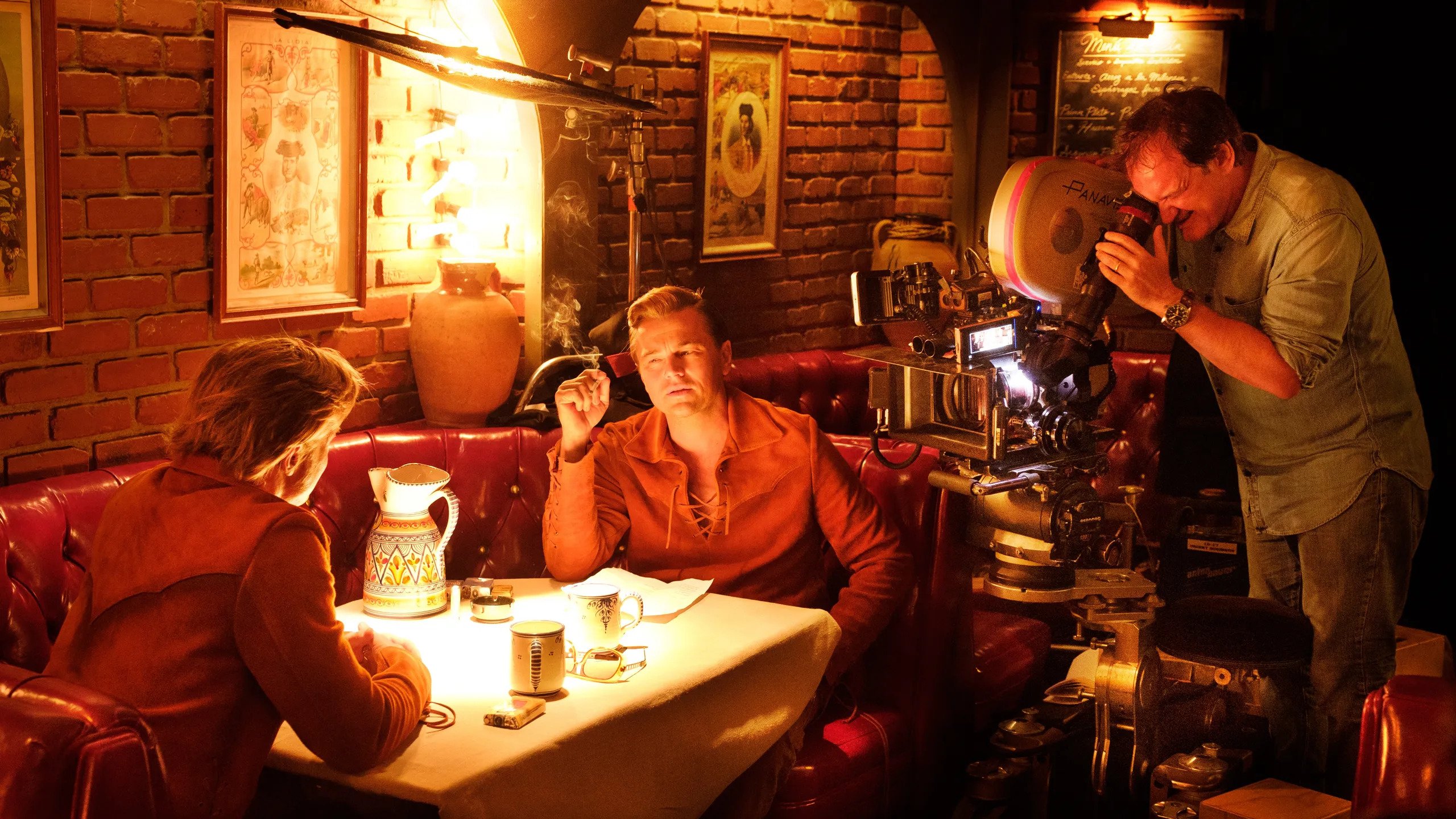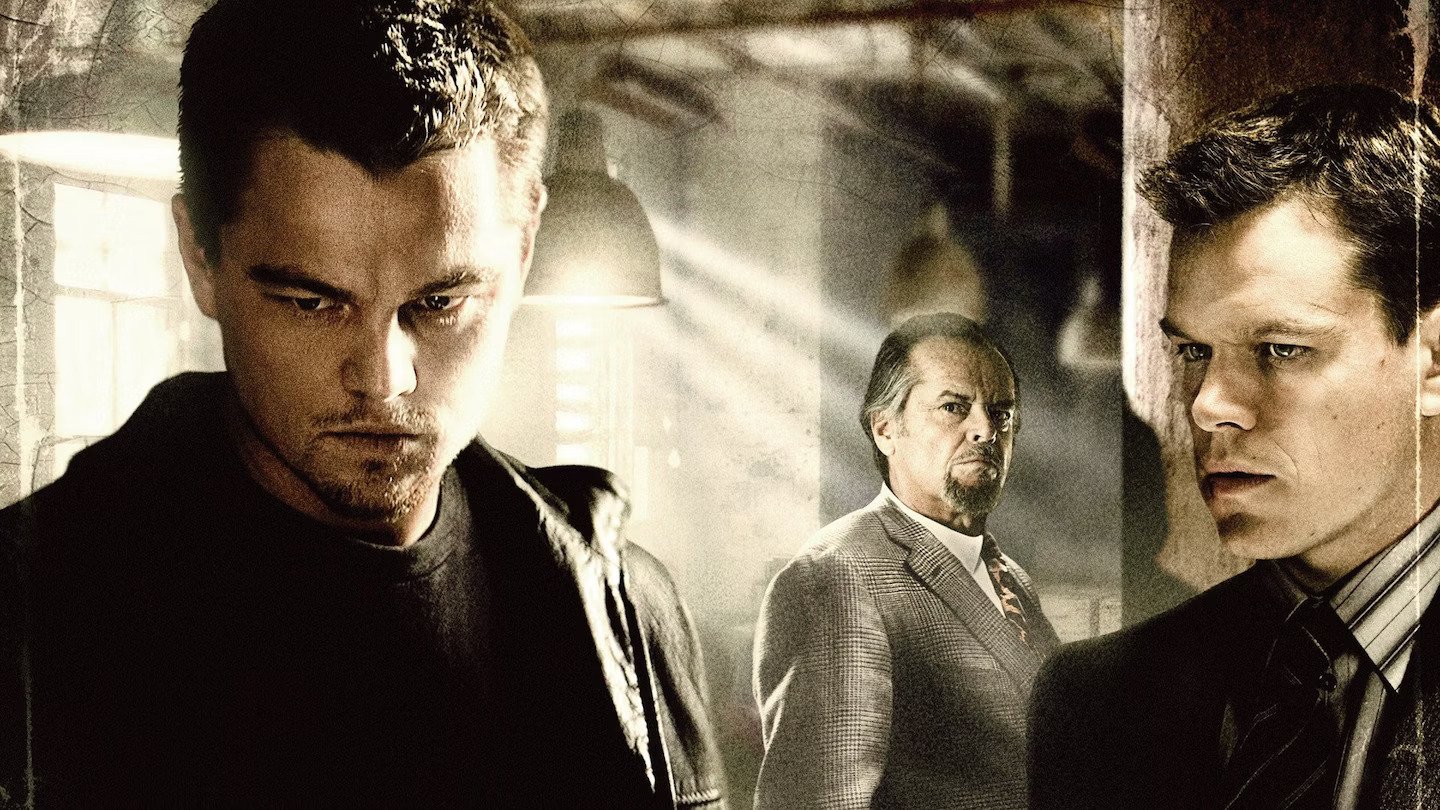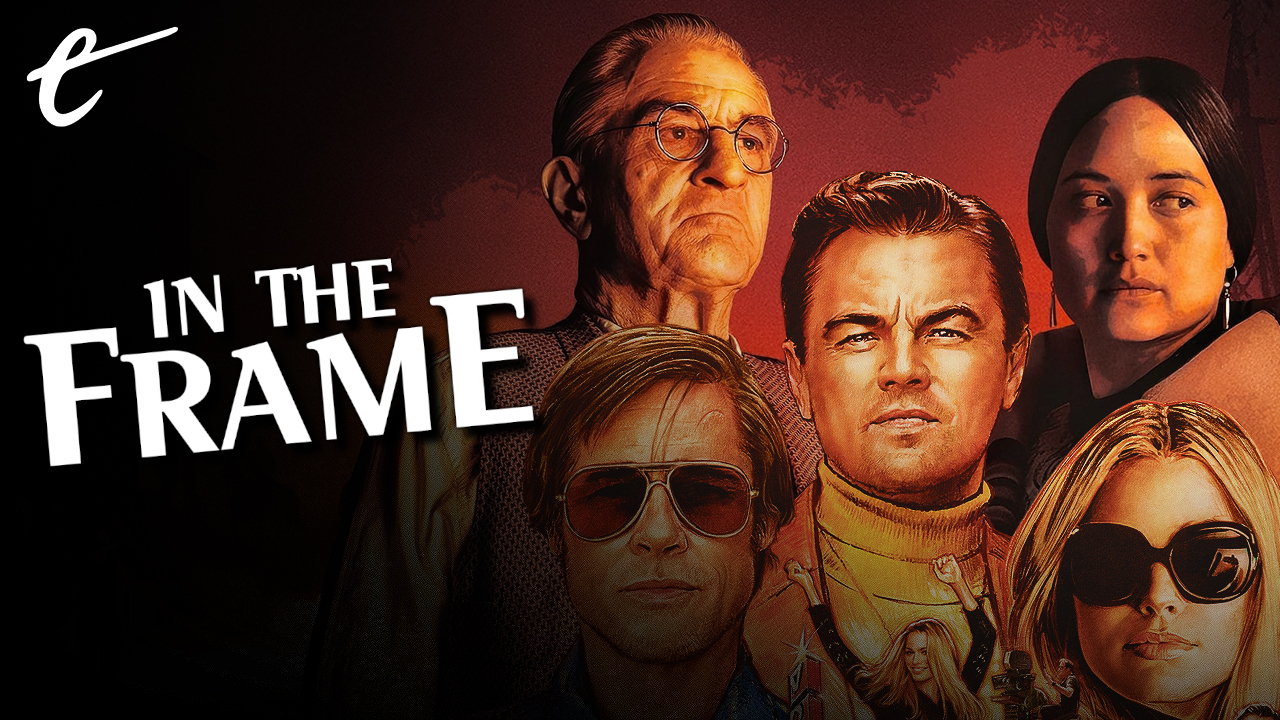Martin Scorsese is certainly having a moment. The release of Killers of the Flower Moon has provided an opportunity to celebrate one of American cinema’s most consistent and beloved filmmakers.
That love has taken any number of forms. Scorsese has been the subject of profile pieces in which the aging director grapples with his mortality. There have been loving and thoughtful retrospectives covering some of the director’s more overlooked films. His daughter Francesca has shared a collection of hilarious and endearing TikToks featuring her father, allowing audiences to see a delightful and playful side to the octogenarian filmmaker that is rare for an artist of his stature.
Part of this is simply a matter of timing. Killers of the Flower Moon stars Robert De Niro, Leonardo DiCaprio, and Lily Gladstone, who would normally front a lot of the publicity. However, the ongoing actors’ strike has meant that much of the press coverage of Killers of the Flower Moon has had to be built around Scorsese himself. The result is a publicity campaign that has foregrounded a director in a way that is relatively rare in modern Hollywood, reminding audiences just how wonderful “Marty” is.
It helps that Killers of the Flower Moon is a vibrant and urgent piece of work. The movie has been embraced by critics and gave Scorsese the third best opening of his career. Of course, the film’s gigantic budget is a concern, but Apple are footing that bill and have never been too concerned about box office. Killers of the Flower Moon seems assured major awards contention, and seems likely to earn Scorsese his tenth nomination for the Best Director Oscar.
Scorsese also gives no impression of slowing down. He has already signaled interest in a number of other projects, including a second movie about the life of Jesus Christ. He is already reteaming with Killers of the Flower Moon author David Grann and his “muse” Leonardo DiCaprio for The Wager, a story about an 18th century shipwreck. Scorsese is prolific and productive, his energy putting filmmakers half his age to shame. His career has been – and will continue to be – incredible.
It’s interesting to contrast Martin Scorsese with another beloved and iconic American filmmaker — Quentin Tarantino. Tarantino is currently working on his new movie, The Movie Critic. However, despite the fact that Tarantino is twenty years younger than Scorsese, he has made a big deal of the fact that The Movie Critic will be his last movie. Tarantino has long signaled that his career as a movie maker came with a time limit, planning to retire at 60 or after a total of ten films.

Tarantino is kinda cheating here. He turned 60 earlier this year, crossing the first of his red lines. There is also some creative accounting required to line up The Movie Critic as his tenth film; it disregards his first film, My Best Friend’s Birthday, and requires either ignoring Death Proof or counting Kill Bill, Vol. 1 and Kill Bill, Vol. 2 as a single film. Still, Tarantino is operating by his own rules. It seems reasonable to allow the director some leeway.
Still, even if the filmmaker sticks to the letter of his promise, he is unlikely to retire into obscurity. Tarantino has a long history directing television shows like E.R. and CSI, and has already announced plans to make his own television show, likely Bounty Law. The director has long expressed interest in becoming a television auteur. He has already written a couple of books. Tarantino has even argued that potential studio gigs like a hypothetical Star Trek film wouldn’t “count against [his] ten.”
That said, Tarantino is one of the most successful and beloved directors in modern Hollywood. He is one of the last filmmakers to become an honest-to-goodness celebrity, as popular on talk shows as he is behind the camera. As such, it is disheartening to think that he might simply step aside and retire from filmmaking. After all, plenty of directors have had long and celebrated careers beyond their sixth or seventh decade. Clint Eastwood is still making movies at the age of 93.
For Tarantino, this is the point. When Bill Maher argued that Tarantino was still at the top of his game and was too young to quit, Tarantino countered, “I know film history, and from here on in directors do not get better.” He told CNN, “I don’t want to work to diminishing returns. I don’t want to be… one, I don’t want to become this old man who’s out of touch when already I’m feeling a bit like an old man out of touch when it comes to the current movies that are out right now.”
There is a vanity in this. Tarantino is concerned with his own legacy as a filmmaker. “Directors don’t get better as they get older,” he told Playboy in 2012. “Usually the worst films in their filmography are those last four at the end. I am all about my filmography, and one bad film fucks up three good ones.” This isn’t an academic argument for Tarantino. He specifically cites “William Wyler and The Liberation of L.B. Jones or Billy Wilder with Fedora and then Buddy Buddy or whatever the hell.”
There is an obvious counterargument to this. Nobody except hardcore cinephiles care that Billy Wilder directed Buddy Buddy. Nobody but completionists will even watch it. Instead, they associate Wilder with the best films in his career. If Wilder had stopped after only ten films, the world would have been denied Some Like It Hot or The Apartment. If Clint Eastwood stopped at 60, audiences would have never seen Unforgiven, Million Dollar Baby, Letters from Iwo Jima, or Gran Torino.

Naturally, Tarantino’s argument came up on the press tour for Killers of the Flower Moon, with Scorsese agreeing with an interviewer that he was simply “built differently” than Tarantino. However, there is a more fundamental juxtaposition to be made here. The issue isn’t simply that Scorsese has continued to be a defining influence on American cinema, like his good friend Steven Spielberg. It’s that Scorsese has arguably only truly found his niche in the later years of his career.
Scorsese was always an important American director. He emerged alongside the other “Movie Brats” of the 1970s, but never quite enjoyed the same success as his contemporaries Steven Spielberg, George Lucas, and Frances Ford Coppola. Scorsese had his champions, and enjoyed a certain degree of critical and commercial success, but never truly broke through. He has talked about feeling “like an outsider” and profiles as recent as the late 1990s described him as “a career Hollywood outsider.”
Scorsese’s first ten feature films include all-timers like Mean Streets, Taxi Driver, and Raging Bull. However, Scorsese himself would acknowledge that those were difficult films and that their reception left him somewhat adrift. He has talked about his “kamikaze” approach to making Raging Bull, convinced that he wouldn’t have an American career left afterwards. For Scorsese, most of the 1980s was a lost decade, a collection of work-for-hire gigs including television and music videos.
Had Scorsese’s career ended there, it seems unlikely that he would be as beloved and as iconic as he is today. Even in the 1990s, when Scorsese was directing movies like Goodfellas or Casino, he still felt quite apart from the larger movie culture. His then-girlfriend Illeana Douglas recalls his reaction to losing the 1991 Best Director Oscar to Kevin Costner, “They don’t like me. They really, really don’t like me.” Even a film like Casino took years to burnish its reputation.
Scorsese has talked about how he almost gave up filmmaking during the 2000s. The production of Gangs of New York was so troubled that he briefly “decided it was over.” The editing process on The Aviator was so stressful that he briefly “left the business.” Reportedly tensions got so high with Warner Bros. during post production on The Departed that Scorsese told the studio, “Fire me, shoot me, kill me — we’re gonna wrestle this thing to the ground.”

Scorsese only really hit the “beloved filmmaker trifecta” of critical acclaim, box office success, and awards recognition after he turned 60. The Aviator was Scorsese’s first film to gross over $200 million worldwide. This was followed by massive commercial success for The Departed, by far the highest-grossing Best Picture nominee of its year. Next came Shutter Island, Scorsese’s biggest earner at the American box office — at least until The Wolf of Wall Street three years later.
This box office success came with the acknowledgement that Scorsese was finally an insider. He won Best Picture and Best Director for The Departed, with his victory such a sure thing that it was handed to him by Spielberg, Lucas, and Coppola. Scorsese finally earned the recognition that he had long sought. The transformation from the 1970s cocaine goblin who cameoed in Taxi Driver to the lovable movie grandpa of A Personal Journey with Martin Scorsese Through American Movies was complete.
Of course, tastes differ and mileage varies. There’s an open-ended debate to be had about whether Scorsese’s 21st century run is as good as his 1970s classics. However, it is a debate. Both Scorsese’ filmography and wider culture are undoubtedly richer for including movies like The Wolf of Wall Street or The Irishman. Even relative underperformers like Hugo or Silence seem likely to be rediscovered as hidden gems in the years ahead, as many of Scorsese’s other films have been.
After all, for decades, the mainstream didn’t truly appreciate the work that Scorsese was doing. The director is still understandably bitter at the critical drubbing that King of Comedy received when it was released in 1982, and that movie is now considered a classic. The box office disappointment of After Hours led to the “lowest ebb” of Scorsese’s career, but has since become beloved. Would those reappraisals of older movies have happened if Scorsese had retired or stepped away?
Of course, Tarantino’s career is his own. He can and should make his own choices, and decide what works best for him. He certainly doesn’t owe pop culture anything more than he has already given it. Still, looking at the success and the popularity that Scorsese has enjoyed in recent years, along with both the consistency of his output and the continuous reminders of his past successes, it’s hard not to think that Tarantino’s legacy would be better served by just letting himself make movies.





